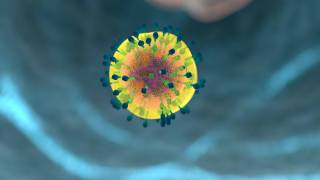Human Vaccines Project Presents Clinical Trial Findings

The Human Vaccines Project reported high-level outcomes from two concurrent clinical studies aimed at deciphering the components and mechanisms used by the human immune system to prevent and control disease.
The findings from the studies may provide important new insights on human immunity that the Human Vaccines Project will leverage to launch expanded studies in 2018.
The first program, the Human Immunome Program, aims to identify the core components that exist across everyone's immune systems and utilize this information to enable development of new and improved vaccines.
This team of scientists is sequencing millions of recombined and expressed B and T cell genes in healthy adults and cord blood samples at an unprecedented depth, seeking to identify shared elements of the human immune system not previously recognized.
"We are studying the immune systems of healthy individuals to identify common elements, which could be important for facilitating new and improved vaccines," explained James E. Crowe, Jr., MD, Director of Vanderbilt University Medical Center's Vaccine Center, and Human Immunome Program leader.
"We also plan to expand these studies to complete the catalog across different demographics and geographies and compare healthy subjects with individuals with immune-mediated diseases such as multiple sclerosis, cancer and Alzheimer's, which could also reveal novel diagnostic markers," said Dr. Crowe.
Early findings from a second clinical research program, the Rules of Immunogenicity Program, aimed at revealing the key principles or rules that the human immune system follows when it comes to the prevention and control of disease.
The long-term goal of this program is to understand the rules of the human immune system that will enable one-shot vaccines to provide long-term protective immunity in all populations.
The aim of this study is to understand why some people respond effectively to a single immunization of a licensed Hepatitis B vaccine, while others require up to three immunizations for generating protective immunity.
Using novel artificial intelligence and machine-learning techniques to analyze large sets of data, preliminary data, comparing three HepB vaccine responders to three non-responders showed that activation of marker genes in subsets of innate immune cells could predict those people that made detectable serum antibody responses against HepB vaccine, after a single immunization.
"With our network of academic and corporate partners, we aim to build on these findings and decode the human immune system, giving the world the tools required to advance the development of future vaccines and therapies to defeat major global diseases," added Wayne C. Koff, PhD, President and CEO of the Human Vaccines Project.
Support and funding for the Project includes the Robert Wood Johnson Foundation, John D. and Catherine T. MacArthur Foundation, GSK, MedImmune, Illumina, Sanofi Pasteur, Johnson & Johnson/Janssen, Pfizer, Moderna, Boehringer Ingelheim, Aeras, Vanderbilt University Medical Center, University of California San Diego, The Scripps Research Institute, J. Craig Venter Institute and La Jolla Institute for Allergy and Immunology.
To learn more, visit Humane Vaccines Project and follow @HumanVacProject on Twitter. For media inquiries, please contact Kierstin Coatney at [email protected] or 1-716-378-1602.
Our Trust Standards: Medical Advisory Committee


























